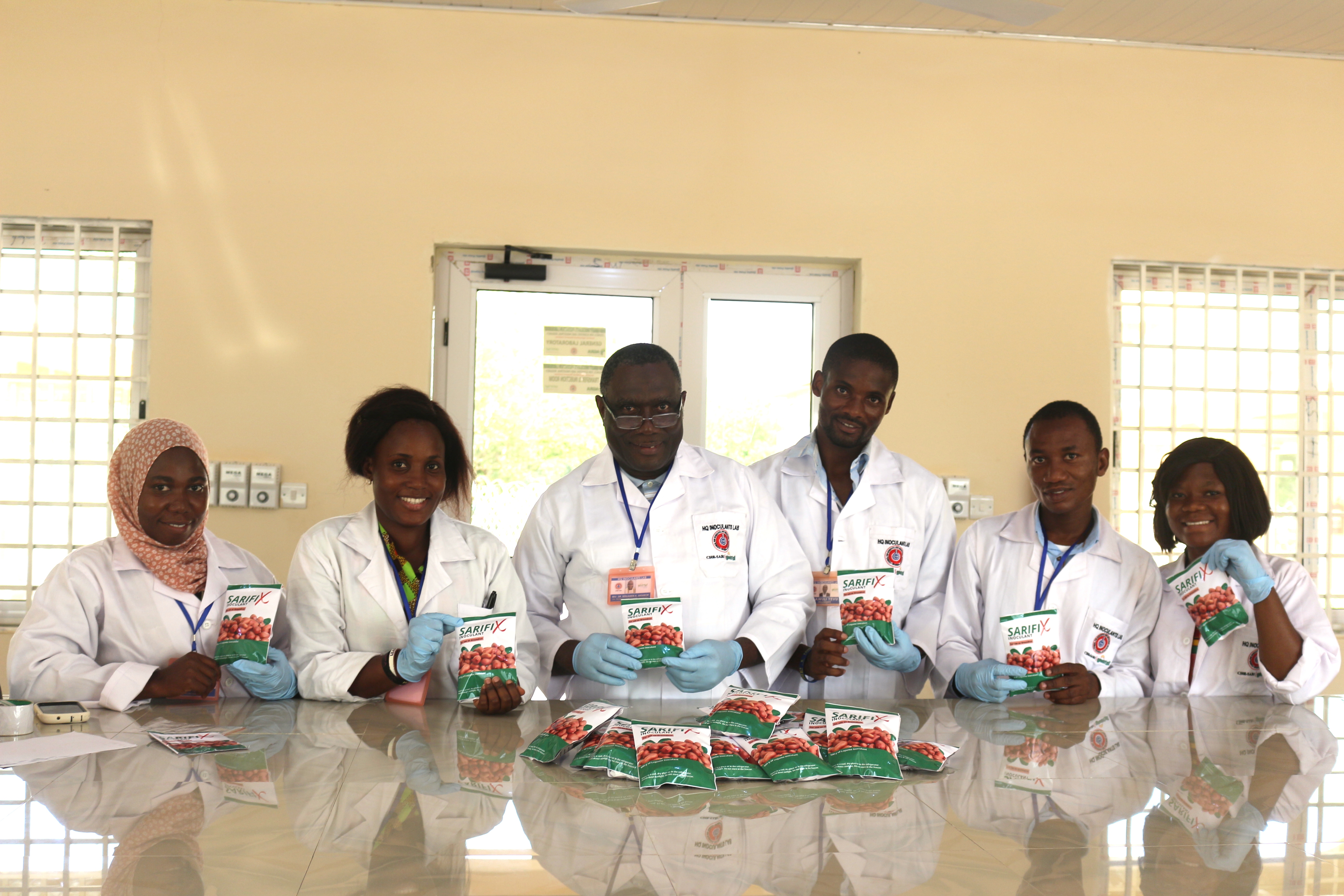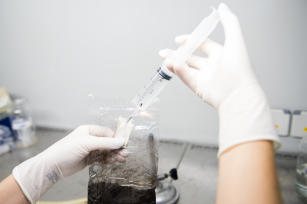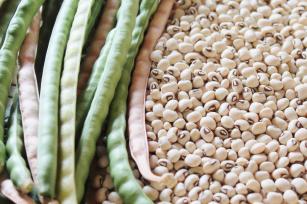Lab in Ghana produces first inoculant doses
Lab in Ghana produces first inoculant doses
After little more than six months since the installation of the first laboratory to produce inoculants in Ghana, Africa, with the support of Embrapa Agrobiology, the first fruits are being reaped: the first inoculant doses for Sarifix peanuts were produced in late May. “The major point is that they themselves finalized a quality product”, celebrates the researcher Luc Rouws, Brazil's leader of a project that focuses on the development of actions in the region aimed at increasing the productivity of legumes such as peanuts and cowpeas.
Located within the Savanna Agricultural Research Institute (SARI), a research unit that belongs to the Council for Scientific and Industrial Research (CSIR), the agency that coordinates research activities in the country, the lab is the first one specifically dedicated to that end in the whole of Western Africa. At the end of last year, the researcher Luís Henrique de Barros Soares visited the venue to help set it up and train the staff in producing inoculants with quality. “That was the main challenge”, Luc reports. “One of the greatest difficulties we had was producing inoculants on site without contamination. And that was achieved”, he celebrates.
The expectation is that the lab will produce inoculants for cowpeas as well. “Such crops are very important as protein sources in the diets of West African countries, and their promotion of biological nitrogen fixation is essential to ensure food security in the region”, asserts Luís Henrique, who is responsible for the quality control of inoculants and bioprocesses at Embrapa Agrobiology.
“The first step was taken. The next one is the logistics to make inoculants available, which will be addressed by the project approved by M-BoSs”, Luc explains, referring to an international cooperation project approved by the platform "M-BoSs: building on successes of the MKTPlace", which will be co-led by the researcher Robert Boddey. M-BoSs is a partnership between the Forum for Agricultural Research in Africa (FARA), the Bill & Melinda Gates Foundation, United Kingdom's Department of International Development (DFID) and Embrapa, which also counts on the support of the Brazilian Cooperation Agency (ABC) and Funarbe.
Translation: Mariana Medeiros
Liliane Bello (MTb 01799/GO)
Embrapa Agrobiology
agrobiologia.imprensa@embrapa.br
Phone number: +55 21 3441-1500
Further information on the topic
Citizen Attention Service (SAC)
www.embrapa.br/contact-us/sac/



